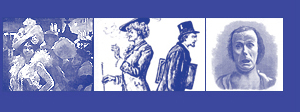Biographies
Jean Alexandre Eugene Lacassagne (1844-1921)
The French criminologist Alexandre Lacassagne was born in Cahors in 1844. He studied medicine at the Military Academy in Strasbourg, and became an army surgeon. Lacassagne served in Africa for several years, studying tattoos while he was there. In 1884 he was appointed Professor of Forensic Medicine at Lyon University. He also became editor of the Archives de l’anthropologie criminelle (AAC). Lacassagne made many important discoveries in forensic pathology, notably, in 1889, that spent bullets had a unique firing signature, a vital contribution to modern ballistics analysis. He also insisted on meticulous post-mortem examinations. He was an early advocate of Alphonse Bertillon’s system of anthropological measurements, and later founded the Laboratory of Technical Police at Lyon.
Lacassagne made a careful study of Joseph Vacher, the notorious French sex-killer, concluding that his ‘insanity’ was mere pretence, and so was fit to stand trial. Vacher murdered at least 11 victims between 1894 and 1897, becoming known as the ‘Ripper of the South-East’. He was tried, on Lacassagne’s recommendation, convicted and executed. Other major works: Précis d'hygiène : privée et sociale (1885); Le vade mecum du médecin-expert: guide médical ou aide- mémoire de l'expert, du juge d'instruction, des officiers de police judiciare, de l'avocat (1892?); Vacher l'éventreur et les crimes sadiques (1899); Précis de médecine légale (1909).

